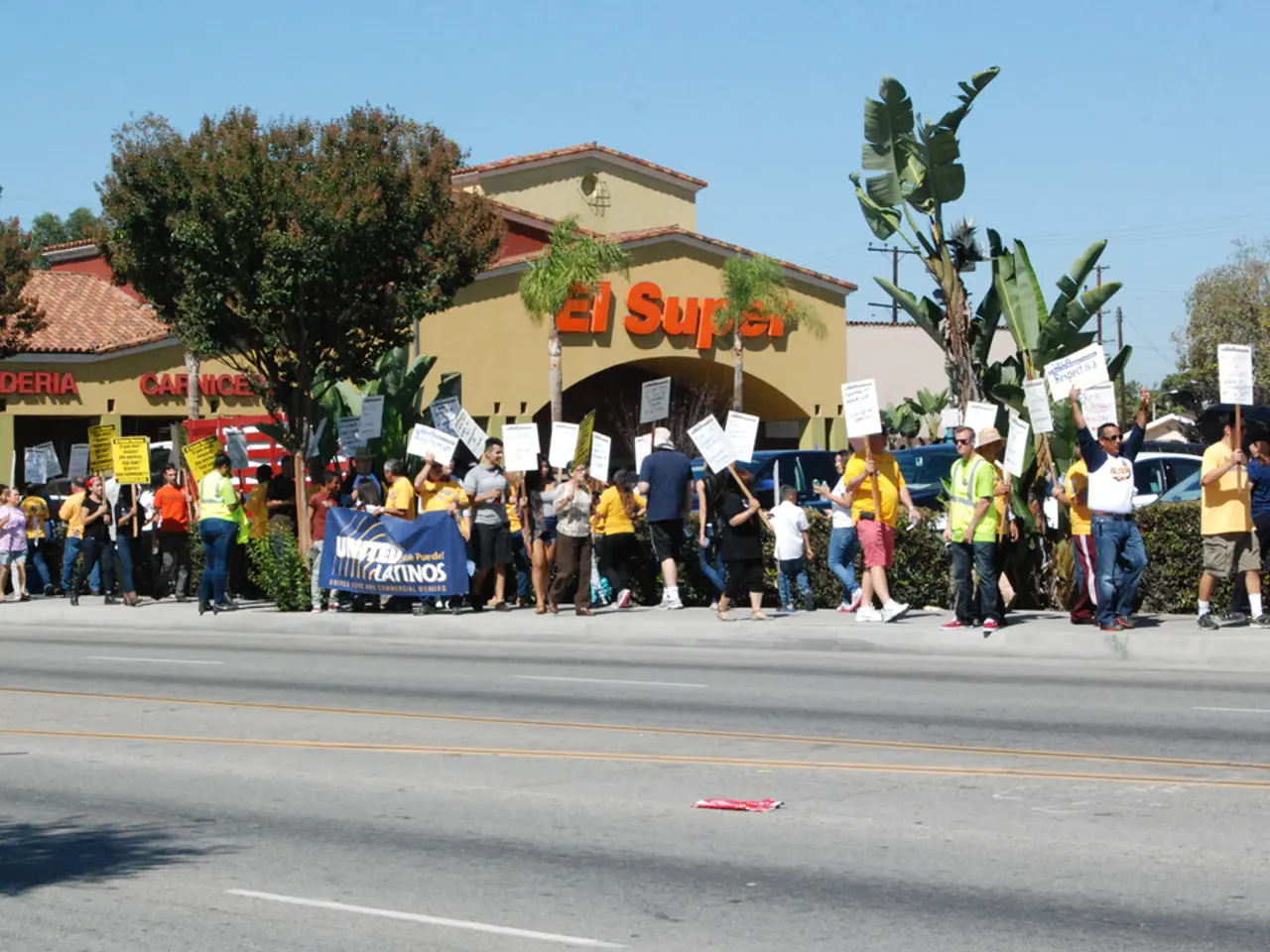In East Germany, "Green" is commonly used as an insult or derogatory term
Green Party in Eastern Germany Faces Challenges Amidst Identity Crisis and Electoral Struggles
The Green Party in Eastern Germany is currently grappling with significant challenges, primarily due to a public perception issue and disappointing election results. These challenges stem from an identity crisis and difficulties expanding beyond their traditional urban, middle-class base, making it hard to appeal to voters in the East where social and political dynamics differ [1].
One of the key challenges is the party's inability to move beyond its core constituency. The Greens struggle to resonate with a broader audience in the East, creating an 'identity trap' that hinders their appeal [1]. This electoral performance issue is further exacerbated by tougher competition from right-wing parties like the AfD, which remains strong in the Eastern states and has deep personal and community connections among voters there [2][5].
The Greens' national coalition, the "Ampel" coalition (SPD, Greens, FDP), has also been plagued by infighting and challenges linked to external crises and economic struggles, undermining their public image and reducing their perceived effectiveness [2]. Additionally, the emergence of new leftist formations, such as Sahra Wagenknecht’s antiwar party, potentially fragments the Greens’ traditional voter base and complicates coalition dynamics [4].
Despite their stance on environmentalism, leaders like Green Party's Franziska Brantner have accused the government of backtracking on climate protection, which may affect voter trust and enthusiasm for the party in both East and West [5]. The strong presence and cultural integration of AfD supporters in Eastern Germany also complicate the Greens’ efforts to position themselves as a dominant force [5].
The local Green Party in Magdeburg has experienced harassment and violence in the past, including the heavy harassment of party leader Ricarda Lang in February 2024. A round with Felix Banaszak in Magdeburg this Wednesday is facing opposition from far-right groups. Ordinary Green Party members regularly experience harassment, and the police often do not help [3].
Moreover, the personnel base in the east is generally thinner than in the west, even though there have been many new members recently. The personnel base outside the major cities is still thin, particularly in Thuringia or Saxony-Anhalt, where there are 1900 and 1500 members, respectively [6]. A Green Party office in Gotha was damaged and defaced with death threats in February, and the culprits remain unknown [3].
The Greens' image is also poor, often portrayed as the scapegoat for all the country's problems and branded as a party of bans. Wide circles of the eastern population feel alienated [3]. In response, Federal Chairman Felix Banaszak is launching a "presence offensive" with an "increased visit frequency" in the East, contributing to this with his own summer tour to Freiberg, Magdeburg, and other places [7].
Banaszak and Heiko Knopf, co-author of a discussion paper, suggest making green climate policy more socially and economically feasible by increasing the number of eastern Germans in key positions within the party, even without a quota [8]. Banaszak urges taking "fear and doubt more seriously" without losing clarity in support for Ukraine, regarding peace policy and the Russian war of aggression in Ukraine [9].
Despite these challenges, the Saxon Greens reported a record number of new members; by the end of 2024, the membership stood at 4500 [10]. The Green Party must navigate these challenges carefully to regain lost ground in the East and broaden their appeal beyond their established base.
- The Green Party's struggles in Eastern Germany extend beyond politics and environmentalism; they are also faced with challenges in war-and-conflicts and crime-and-justice, as their image is often tarnished, and they are perceived as the scapegoat for the country's problems.
- Adding to their challenges, the Green Party experiences difficulties in general-news areas such as identity crises and electoral struggles, as they grapple with an inability to resonate with a broader audience and a thin personnel base outside major cities, creating hurdles for their expansion.





